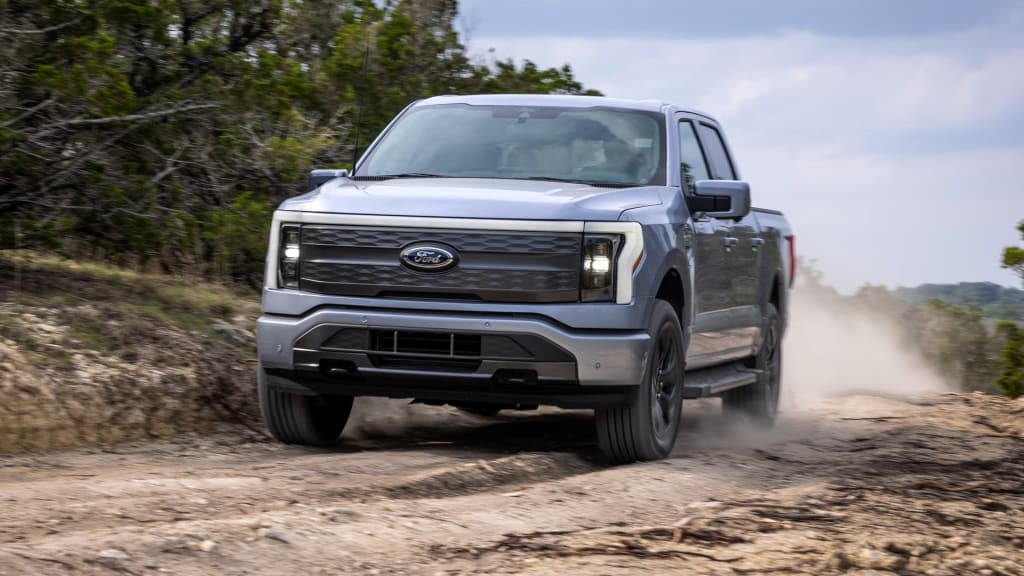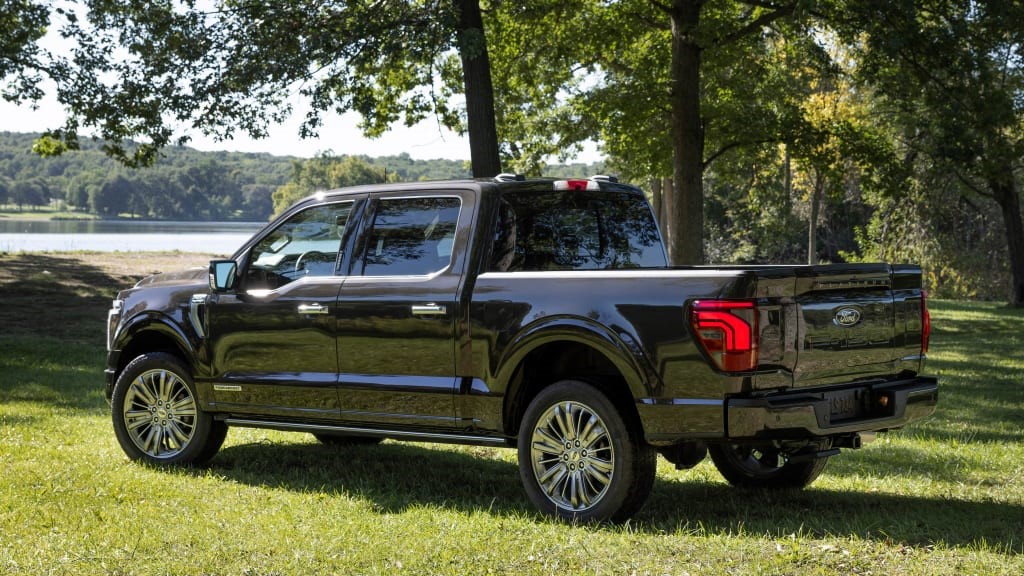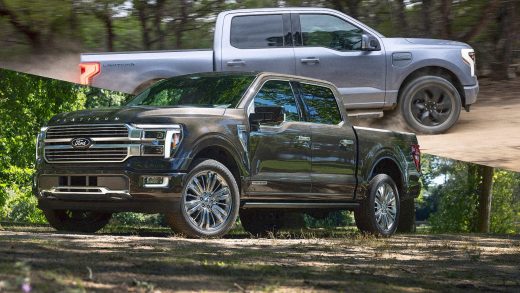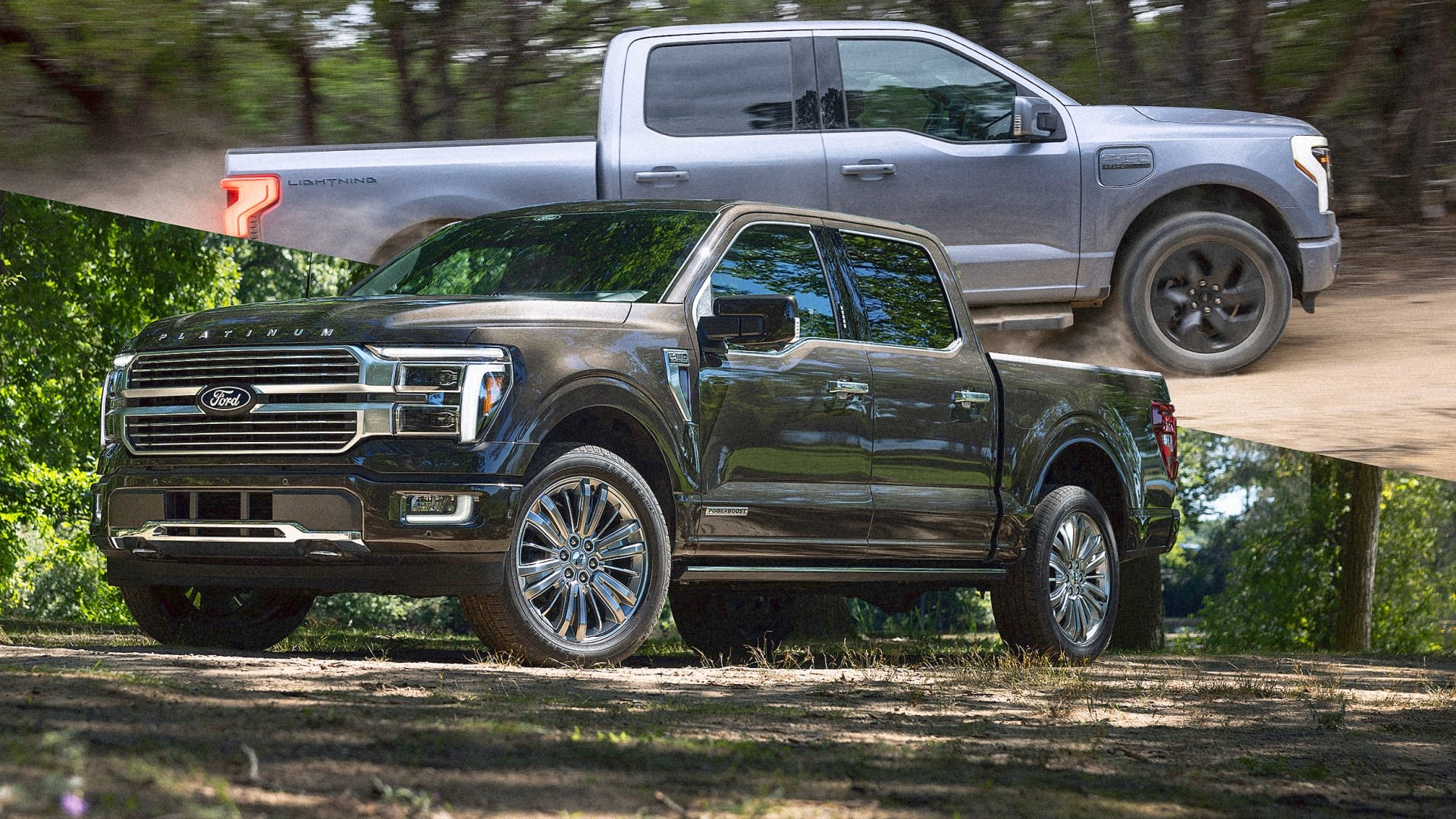Ford cancels some electric SUVs in favor of hybrid models—but it’s not abandoning EVs entirely
Ford cancels some electric SUVs in favor of hybrid models—but it’s not abandoning EVs entirely
To improve profits, the automaker is revamping its EV strategy.
As U.S. carmakers face slowing EV sales, they’re rethinking their electric plans. Ford is the latest company to make this adjustment, announcing Wednesday that it plans to prioritize hybrid technologies for its next SUVs, and will slash a planned all-electric model. Still, the car company is planning to roll out new EVs—including one with a focus on affordability.
“We are committed to innovating in America, creating jobs, and delivering incredible new electric and hybrid vehicles that make a real difference in CO2 reduction,” said Ford president and CEO Jim Farley in a statement. The company’s F-150 Lightning became the best-selling electric truck after it debuted in 2022 (though it has recently been dethroned by the Tesla Cybertruck). But despite the F-150’s success, the company has been losing money on every EV sold. (Ford currently sells three all-electric vehicles: F-150 Lightning, Ford Mustang Mach-E SUV, and Ford E-Transit van.)

Other factors are adding pressure to profits, including an influx of new EV options hitting the market and the affordability of Chinese competitors around the world. (Tariffs have so far kept Chinese EVs out of the U.S. market.) EV customers today are also more cost-conscious than those who made the switch to electric early on, Ford says.
To bolster its profits, the auto manufacturer is no longer planning to produce all-electric three-row SUVs. Instead, its next three-row SUV will be a hybrid. Ford hybrid sales increased 34% in the second quarter of 2024, compared to the previous year. Ford now plans to scale back its annual capital expenditures dedicated to fully electric vehicles, from 40% to 30%.

Still, there are new all-electric Fords on the horizon. The company will roll out a commercial EV van that will be assembled in its Ohio plant beginning in 2026. And it’s working on low-cost EVs, starting with a midsize electric pickup truck, expected to launch in 2027. The company says it’s too early to talk about exactly how affordable that EV will be, but previously, it gave a price of around $25,000 as a “general target” to illustrate what its new low-cost EV platform could allow for. (The F-150 Lightning starts at $54,995, while Ford’s electric SUV, the Mustang Mach-E, starts at around $43,000.)
In 2022, Ford established a skunkworks team in California focused on next-generation vehicle development and also “bending the cost curve” on EVs. “We recruited the most technically skilled and creative professionals from inside and outside Ford to drive a radical change in how we develop an electric vehicle,” Farley said in a statement. “These electric vehicles will be lower cost, and not compromised in any way.”
Ford is also developing another full-size electric truck, building off the success of the F-150 Lightning. Codenamed “Project T3,” that vehicle “will offer features and experiences never seen on any Ford truck,” the company said, including upgraded bi-directional charging capability and advanced aerodynamics. Originally that truck was supposed to begin production in 2025; Ford announced Wednesday that that has been pushed back to the second half of 2027.
To further address the cost of EV batteries, Ford is switching up its battery sourcing. It will move some Mustang Mach-E battery production from Poland to Holland, Michigan, in 2025, which qualifies the company for Inflation Reduction Act benefits. (The Mach-E is no longer eligible, however, for the consumer tax credit.) Beginning in 2025, its BlueOval City manufacturing complex in Tennessee will produce cells for Ford’s new electric commercial van. Meanwhile, in Michigan, the company plans to open a $3.5 billion lithium iron phosphate battery plant in 2026—which it says is the first such plant in America backed by an automaker.
ABOUT THE AUTHOR
(7)



